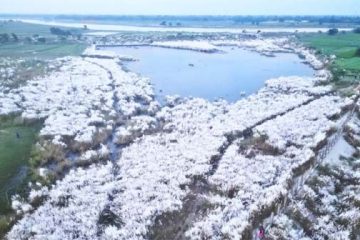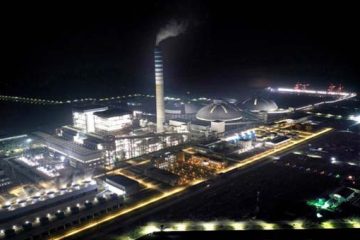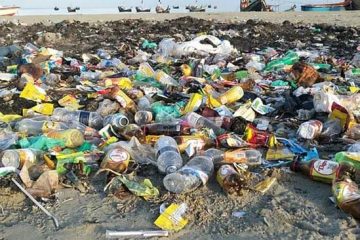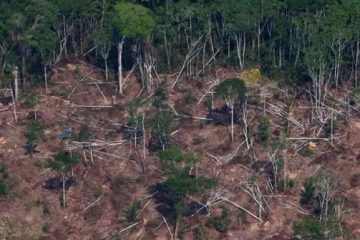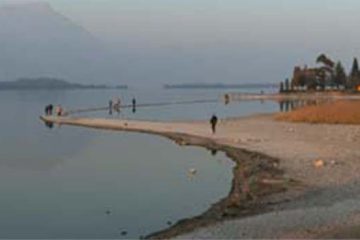Mahbuba Nasreen
 World Food and Agricultural Organization’s (FAO’s) recent projections to 2030 suggest that globally the share of food in average household expenditure will continue to decline. However, recent trends, at least for some commodities, appear to be showing the reverse, with food prices increasing faster than incomes. Growing scarcities of water, land and fuel are likely to put increasing pressure on food prices, even without climate change. Additional pressures on these resources due to climate change, the introduction of mitigation practices that have the potential to create land use competition, and the attribution of market value to environmental services to mitigate climate change, also have the potential to cause significant changes in relative prices for different food items and an overall increase in the cost of an average food basket for the consumer.
World Food and Agricultural Organization’s (FAO’s) recent projections to 2030 suggest that globally the share of food in average household expenditure will continue to decline. However, recent trends, at least for some commodities, appear to be showing the reverse, with food prices increasing faster than incomes. Growing scarcities of water, land and fuel are likely to put increasing pressure on food prices, even without climate change. Additional pressures on these resources due to climate change, the introduction of mitigation practices that have the potential to create land use competition, and the attribution of market value to environmental services to mitigate climate change, also have the potential to cause significant changes in relative prices for different food items and an overall increase in the cost of an average food basket for the consumer.
According to FAO, food security exists when all people at all times have physical or economic access to sufficient, safe and nutritious food to meet their dietary needs and food preferences for an active and healthy life. To achieve food security all four of its components must be adequate. These are: availability, stability, accessibility and utilization. A food system is a set of dynamic interactions between and within bio-geophysical and human environments that influence both activities and outcomes all along the food chain (production, storage and processing, distribution, exchange, preparation and consumption). Food security is the outcome of food system performance at global, national and local levels. It is often directly or indirectly independent or agricultural and forest ecosystem services, e.g, soil and water conservation, and watershed management, combating land degradation, protection of coastal areas and mangroves, and biodiversity conservation.
Around the world South Asian countries are more prone to food insecurity. The people in the regions of Indo-Ganges agricultural plains of Bangladesh, Pakistan, India and Nepal are characterized with high population growth, poverty and high dependency on agriculture to maintain their livelihood. South Asia has 22 percent of world’s population (about 1.4 billion) including 40 percent of world’s poor. More than half of the population of South Asia is directly dependent on Agriculture to maintain their livelihood and food security. IPCC5 claimed that climate change has a direct impact on the global food security, especially in the South Asia.
It has been projected that global mean annual surface air temperature by the end of this century will likely to be increased in the range of 1.8 to 4.0d C. Overall in South Asia the temperature will likely to be much higher in winter (robi crop season) than in monsoon (kharif season). It is very likely that heat waves, heavy precipitation events will become more frequent. The IPCC reported crop yields could decrease up to 30 per cent in Central and South Asia by the mid-21st century.
United Nations Framework Convention on Climate Change (UNFCCC) claims climate change as one of the causes of food insecurity. It presents some of the impacts of climate change on food production which are already visible and seem to be advancing at a higher rate than previously anticipated:
* Regional temperature rises at high northern latitudes and in the center of some continents;
* Increased heat stress to crop and livestock; e.g. higher night-time temperatures, which could adversely affect grain formation and other aspects of crop development;
* Possible decline in precipitation in some food-insecure areas such as southern Africa and the northern region of Latin America;
* Increased evapotranspiration rates caused by higher temperatures, and lower soil moisture levels;
* Concentration of rainfall into a smaller number of rainy events with increases in the number of days with heavy rain, increasing erosion and flood risks;
* Changes in seasonal distribution of rainfall, with less falling in the main crop growing season;
* Sea level rise, aggravated by subsidence in parts of some densely populated flood-prone countries, displacing millions;
* Food production and supply disruption through more frequent and severe extreme events.
Achieving food security and reducing poverty in Bangladesh has been a major challenge for both governments and development agencies due to vulnerability of Bangladesh agriculture. Currently, much more people in the rural Bangladesh are considered food insecure due to recurrent different events like flood, storm, river bank erosion, salinity intrusion, and drought. This unfortunate situation is the result of many factors, some of which are:
* The poor nature of soils due to intensive cultivation and cropping (most soils are now low in organic matter content, low in carbon and poor in different micro-nutrients);
* The rapid population growth, which has led to continuous cropping, expansion of agriculture to marginal areas and overgrazing;
* The low use of technologies such as improved varieties, fertilizers, mechanization and irrigation that have stimulated agricultural development; and
* The absence of adequate technologies and policies that take into account the specific needs of the small-scale farmers.
A recent study (Nasreen, et al. 2008) pointed out that climate change induced disasters and food insecurity affect both women and men but the burden of coping with disaster falls heavily on women’s shoulders in Bangladesh. Women suffer more than men from poverty, hunger, malnutrition, economic crises, environmental degradation, health related problems, insecurity and become victim of violence and political crises. The gendered division of labour becomes critical as gender roles are often re-enforced and even intensifieddue to the additional work and changes in environment brought on by a disaster. It has been argued that violation of women’s rights becomes more prominent during disaster. People have to depend on relief to cope with disaster, however, relief does not reach to those people who mostly need it. Women’s own adoptive techniques and initiatives become crucial for their family sustenance and ensuring food security.
Right to food raises questions in Bangladesh about capacity to adaptation to attain food security because of the uneven distribution/allocation of resources and crop damages due to recurrent climatic events of floods, salinity and drought. The women and children among the poor and marginal people are the major victims who are trying to adapt spontaneously to such impacts but limited resources and vulnerability to natural disasters hindering them to solve their problem of food security. In Bangladesh in particular the poor and marginal people are expected to suffer most especially by flood and salinity.
There are specific programmes in Bangladesh Climate Change Strategy and Action Plan (BCCSAP, 2008, Ministry of Environment and Forests, GOB) under several themes, of which 10 themes are directly related to food security. Some of these are having specific programmes on food security including agriculture cropping, livestock and fisheries.
Since food insecurity depends more on socio-economic conditions rather than on agroclimatic ones, the ways in which climate change can affect people’s access to adequate food is rather complex. Future food security will mainly depend on the interrelationships between political and socio-economic stability, technological progress, agricultural policies and prices, growth of per capita and national incomes, poverty reduction, women’s education, trade and climate variability. Climate change, however, may affect the physical availability of food production by shifts in temperature and rainfall, people’s access to food by lowering their incomes from coastal fishing because of rising sea levels, or lowering a country’s foreign exchange earnings by the destruction of its export crops because of the rising frequency and intensity of tropical cyclones. Thus global food security should be ensured through addressing climate change from a wide range of perspectives, of which reducing its impact should be given high priority.
Dr. Mahbuba Nasreen is Professor, Department of Sociology, University of Dhaka.
Courtesy: thedailystar.net

